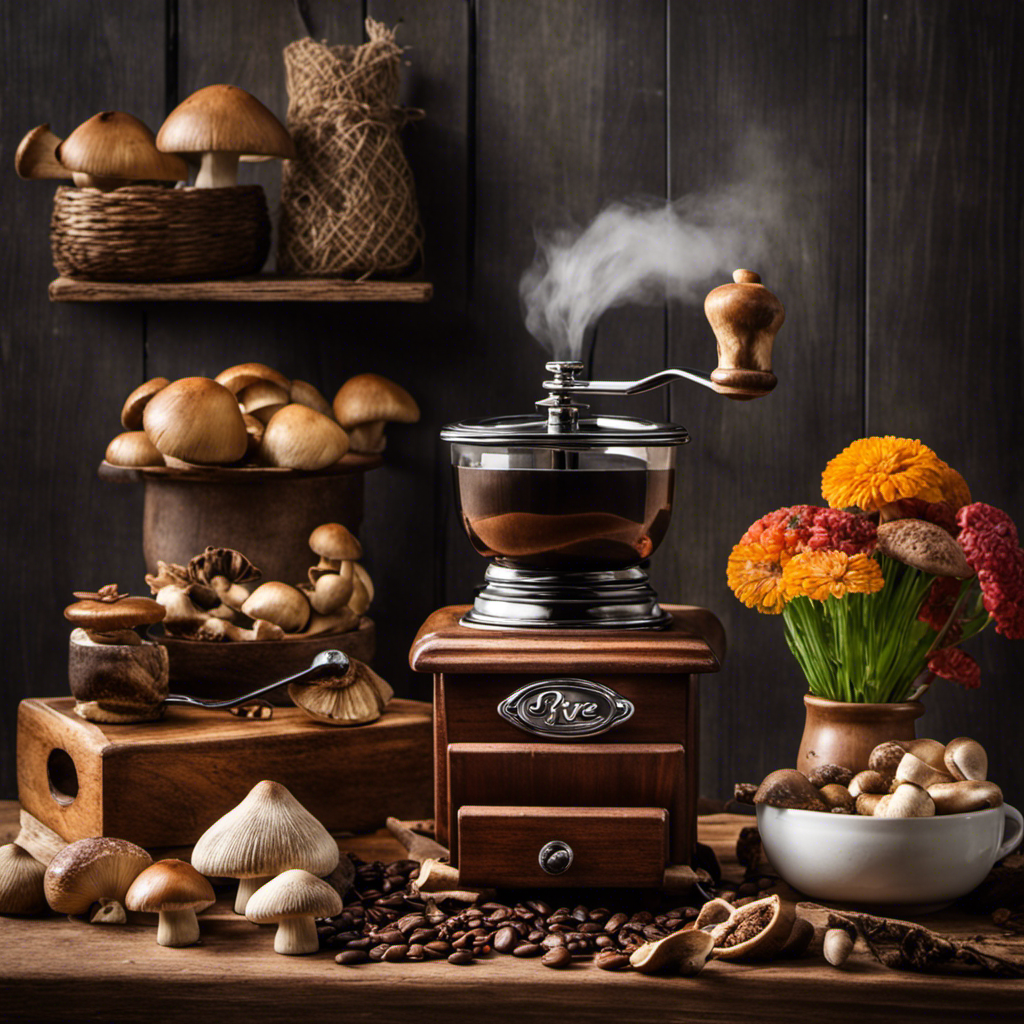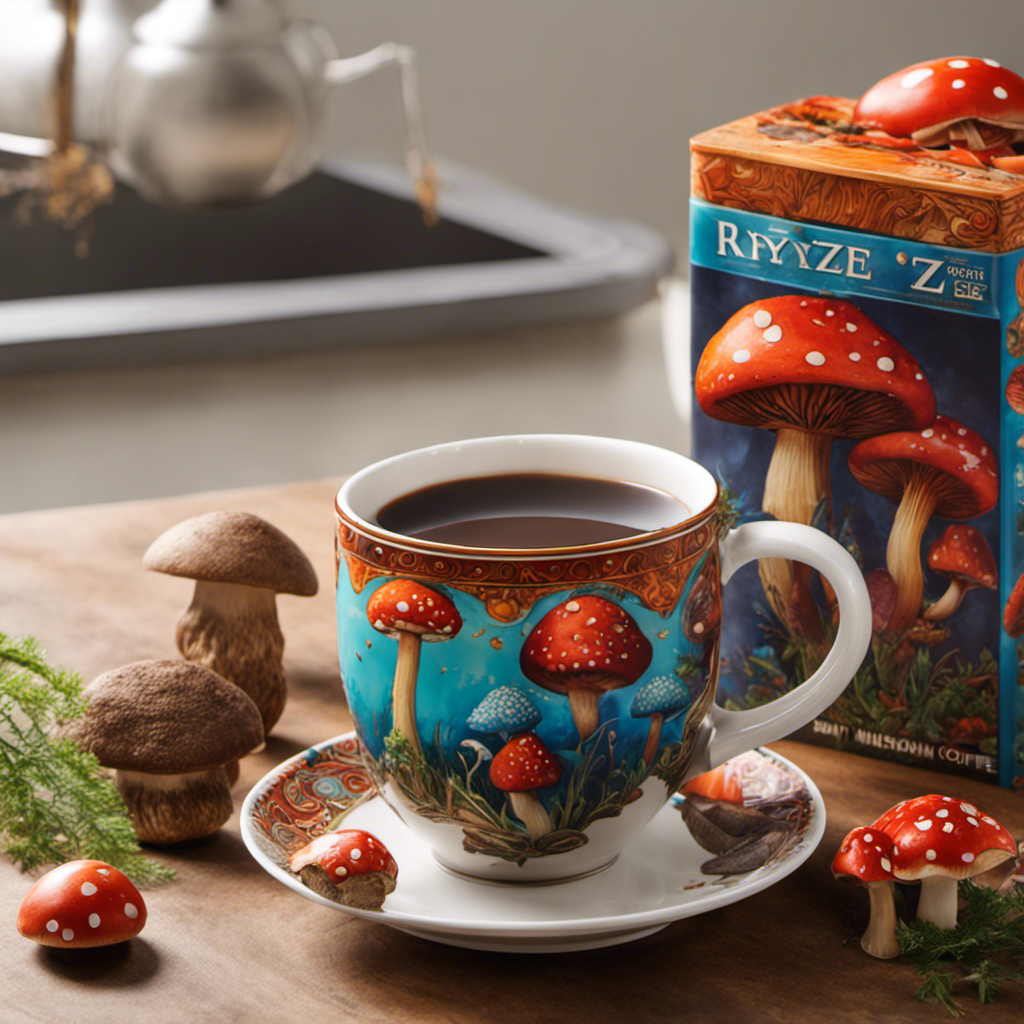Beginners Guides
To Caffeinate Or Not To Caffeinate: A Guide To Drinking Espresso During Pregnancy
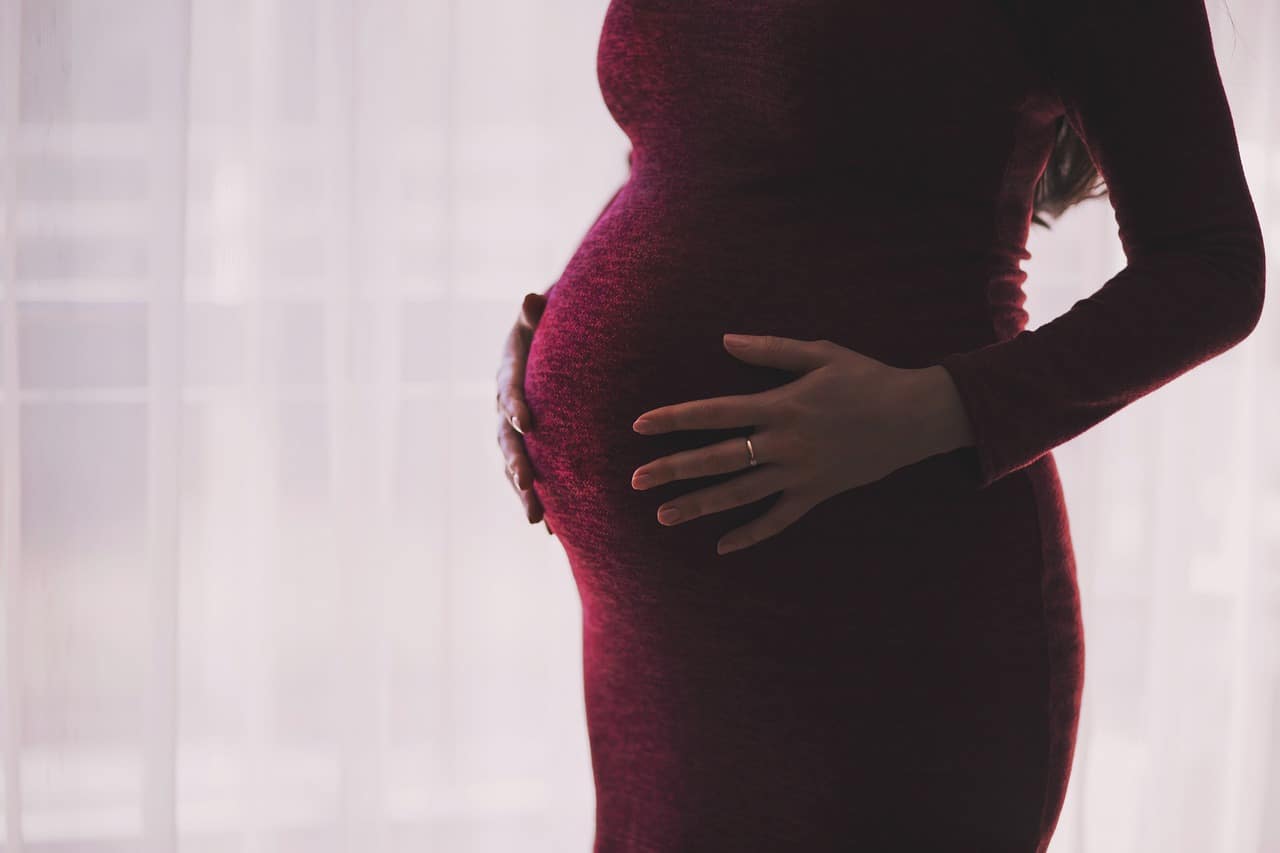
Pregnancy is an exciting and overwhelming experience. With so many changes happening in your body, it can be hard to keep up with all the advice on what to do and not do. One of the most commonly debated topics amongst pregnant women is whether or not they should be drinking espresso during their pregnancy.
I know I certainly had my doubts when I was going through my own pregnancy – after all, caffeine isn’t exactly known for being a particularly healthy option. But after researching the topic more deeply, I found that there are actually a few benefits that come from drinking espresso while pregnant – as long as it’s done in moderation.
In this guide, I’m going to take you through all the important information about caffeine and pregnancy: from how much caffeine is safe to consume during your pregnancy to some delicious ways of enjoying espresso without overdoing it. So if you’re wondering whether or not you should be indulging in a bit of caffeinated goodness during your pregnancy, read on!
Definition Of Espresso
Ah, espresso. That magical, steaming cup of coffee that gives us the energy to get through our day. But did you know that espresso isn’t just your regular cup of joe? It’s a special type of coffee made with finely ground beans and brewed under high pressure. To be precise, espresso is a concentrated version of coffee — one shot contains about 30-50 ml of liquid.
So what exactly makes it different from other types of coffee? Espresso is usually more intense than regular drip or French press coffee, due to its concentrated brewing process. This means that one cup of espresso can pack as much caffeine as two regular cups of coffee! It also has a richer flavor with hints of chocolate and caramel notes, making it a perfect pick-me-up for any time of the day.
But that doesn’t mean espresso is always the best choice for everyone. For pregnant women in particular, it’s important to think twice before drinking an espresso as too much caffeine can have serious effects on both mom and baby. So if you’re expecting and looking for a cup of joe, read on to find out more about the benefits (and risks) associated with caffeinated beverages during pregnancy!
Benefits Of Caffeinated Beverages During Pregnancy
As a pregnant woman, you may be wondering if it’s safe to enjoy a cup of espresso during pregnancy. The answer is yes – but in moderation! Caffeinated beverages like espresso can have some benefits when consumed during pregnancy, as long as they are kept within moderate levels.
For starters, caffeine can help give you an energy boost that can help manage fatigue during pregnancy. Caffeine is also known for its mood-boosting effects and can even help improve alertness and concentration. In addition, coffee contains essential vitamins and minerals that can contribute to maternal health.
However, it’s important to keep in mind that too much caffeine can increase your blood pressure and heart rate – both of which could potentially be dangerous for your baby’s development. That’s why pregnant women should always keep their daily intake of caffeine below 200 milligrams (about two cups of coffee). When consumed responsibly, espresso can be an enjoyable treat that comes with some potential benefits during pregnancy.
Now let’s take a look at the risks associated with drinking espresso during pregnancy…
Risks Associated With Drinking Espresso During Pregnancy
When it comes to drinking espresso during pregnancy, there are certain risks associated with caffeine-related beverages that should be taken into consideration. While moderate intake of coffee can provide some benefits, consuming too much can increase your risk of miscarriage and pose potential risks to fetal development. Caffeine has been linked to an increased risk of low birth weight and preterm labor, as well as an increased risk of stillbirth in late pregnancies.
Moreover, high levels of caffeine intake have been linked to heartburn relief, but this is only temporary and could be dangerous for pregnant women who suffer from chronic heartburn. If you find yourself drinking espresso more often than recommended, it may be best to speak with your doctor about other solutions for managing your heartburn.
Ultimately, it’s important to keep in mind that there is no one-size-fits-all answer when it comes to caffeine consumption during pregnancy. Every woman will react differently to different levels of caffeine intake, so it’s important to talk with your doctor about what amount is right for you. From there, you can make an informed decision about whether or not espresso is the right choice for you during pregnancy.
Up next, let’s take a look at the recommended caffeine intake for pregnant women…
Recommended Caffeine Intake For Pregnant Women
When it comes to caffeine consumption during pregnancy, the recommended amount is no more than 200 milligrams per day. That’s equivalent to about one 12-ounce cup of coffee or two 8-ounce cups of tea. As for espresso, it contains up to three times more caffeine than regular drip coffee and can contain as much as 75 milligrams in just two ounces. Therefore, it’s important to consider your overall daily caffeine intake when drinking espresso during pregnancy.
It’s also important to note that while caffeine intake should be monitored, some studies have found that moderate levels of caffeine consumption may have certain benefits. Moderate amounts of coffee have been linked to a reduction in the risk of gestational diabetes and pre-eclampsia – a condition characterized by high blood pressure during pregnancy. While this isn’t an excuse to overindulge in caffeinated beverages, it does suggest that some women may benefit from moderate amounts of caffeine intake.
TIP: Keep track of your daily caffeine intake by keeping a log or using an app on your phone. This will help you stay within the recommended limit and ensure that you’re not consuming too much during pregnancy.
Now let’s take a look at alternatives to espresso drinks for pregnant women…
Alternatives To Espresso Drinks
When it comes to caffeinated beverages during pregnancy, there are plenty of alternatives to espresso. For those looking for a lower caffeine option, decaffeinated coffee is a good choice. It still has some caffeine, but only about 5-10 milligrams per cup – much less than regular drip coffee or espresso.
Herbal teas are also great alternatives for pregnant women who want something hot and flavorful without the caffeine. Yerba mate is an herbal tea made from the leaves of the yerba mate plant and contains no caffeine whatsoever. Rooibos tea is another herbal beverage that’s naturally caffeine-free and is known for its earthy flavor and aroma. Chai tea is also a popular option, as it’s made with spices like cinnamon, cardamom, ginger and cloves.
So if you’re pregnant and looking for a way to enjoy a hot drink without consuming too much caffeine, there are plenty of options out there. From decaffeinated coffee to herbal teas like yerba mate or rooibos, there’s something out there to suit every taste preference. But before indulging in any of these beverages, be sure to consult with your doctor first and be mindful of your daily caffeine intake.
Now that we’ve discussed some alternatives drinks for pregnant women, let’s take a look at how to prepare and enjoy safely brewed espresso…
Preparing And Enjoying Safely Brewed Espresso
When it comes to enjoying espresso during pregnancy, preparation is key. Knowing how to safely brew an espresso and make sure that it is not too strong or bitter can make all the difference in your experience. Here are some tips on how to prepare and enjoy a cup of brewed espresso without overdoing it on the caffeine.
First, be mindful of the brewing process. Espresso should be made with freshly ground beans and prepared using high-pressure steam. This method will ensure that the flavors of the coffee are extracted efficiently and that you get a consistent cup of espresso every time. When brewing, use filtered water and keep your machine clean for optimal results.
Once you have mastered the technique for preparing espresso, you can start experimenting with different types of coffee beans to find one that suits your taste preferences best. Try a variety of roasts and blends to find one that produces a flavorful cup of espresso without being overly bitter or acidic.
Finally, when drinking brewed espresso during pregnancy, watch out for added ingredients like sugar or cream which can quickly add up in terms of calories and fat content – something you want to avoid while pregnant! Enjoying a cup of safely brewed espresso during pregnancy can be a great way to treat yourself while keeping an eye on your caffeine intake.
Frequently Asked Questions
What Is The Optimal Amount Of Espresso To Drink During Pregnancy?
Pregnant women ponder the perils of caffeine consumption, but how much espresso is optimal during pregnancy? Espresso is a popular coffee choice that contains more concentrated levels of caffeine than regular coffee, and pregnant women must consider their caffeine intake carefully. The current H2 focuses on what amount of espresso is ideal for pregnant women to drink without risking harm to their unborn child.
When it comes to drinking espresso during pregnancy, there is no one-size-fits-all answer. Experts suggest that pregnant women limit their daily caffeine intake to less than 200 mg, which can be difficult to gauge with espresso as it will vary depending on the type and size of the espresso consumed. Therefore, it’s important that pregnant women pay attention to the quantity they are drinking and measure out servings accordingly.
A good rule of thumb is 1-2 shots of espresso or a maximum 8 oz cup per day. For those who are unable to abstain from consuming espresso altogether, these guidelines should help keep your caffeine intake within safe limits while still enjoying a cup of your favorite beverage. Of course, speaking with your doctor about any concerns you may have regarding optimal amounts for you personally is always recommended. Ultimately, when it comes to drinking espresso during pregnancy, moderation is key when it comes to ensuring the safety and health of both mom and baby!
Is Decaffeinated Espresso An Acceptable Alternative For Pregnant Women?
When it comes to espresso during pregnancy, there can be a lot of questions. Is decaffeinated espresso an acceptable alternative for pregnant women? That’s a great question! Decaffeinated espresso is certainly an option that pregnant women should consider.
Caffeine consumption during pregnancy can have some risks, so reducing caffeine intake can help reduce the risk. When pregnant women are looking for an alternative to regular espresso, decaffeinated espresso is a great choice. It contains fewer caffeine than regular espresso, but still has the same rich flavor and bold taste.
However, it should be noted that decaffeinated espresso still contains some caffeine, so it’s important to pay attention to how much you are consuming while pregnant. Discussing this with your doctor and taking into account factors such as your health history and lifestyle can help ensure that you get the right amount of caffeinated beverages while pregnant.
All in all, decaffeinated espresso can be an acceptable alternative for pregnant women who want to avoid consuming too much caffeine. However, moderation is key when drinking any type of caffeinated beverage during pregnancy.
Are There Any Health Benefits To Drinking Espresso During Pregnancy?
Did you know that about 97% of pregnant women in the United States consume caffeine during pregnancy? With the popularity of espresso increasing, many expectant mothers are considering its potential health benefits. So, what are the benefits of drinking espresso during pregnancy?
As with anything, moderation is key when it comes to consuming espresso during pregnancy. Consumed in moderation, there may be some health benefits. For example, research suggests that moderate consumption of caffeine can reduce the risk of miscarriage and stillbirth. Caffeine may also help reduce the risk of developing gestational diabetes or experience fatigue while pregnant.
However, it’s important to note that excessive consumption of caffeine has been linked to a variety of complications during pregnancy. To ensure your health and that of your unborn baby, it’s best to talk to your doctor about what amount is safe for you specifically. Your doctor will be able to provide personalized advice on how much espresso you should drink during your pregnancy and any other dietary changes you might need to make.
If you decide to drink espresso while pregnant, make sure you limit your daily intake and avoid drinking caffeinated beverages late at night so they don’t disrupt your sleep cycle. Taking these precautions can help ensure a healthy pregnancy for both you and your baby!
Is It Safe To Consume Espresso Drinks From A Coffee Shop While Pregnant?
It’s natural to want to indulge in your favorite espresso drinks when you’re pregnant. But before you head out for a coffee shop treat, it’s important to consider if it is safe to consume these drinks while pregnant. So, let’s take a closer look at whether or not it is safe to consume espresso drinks from a coffee shop while pregnant.
When considering the safety of consuming espresso drinks from a coffee shop while pregnant, there are two main factors that must be taken into account: the additives used in the drink and any potential health risks posed by drinking the beverage itself. First, many coffee shops will add extra ingredients to their espresso drinks like flavored syrups and whipped cream, which may contain artificial sweeteners or other unhealthy additives that can be bad for your baby. Therefore, it is best to order an unsweetened espresso drink with no added ingredients to ensure that you are not putting your baby at risk of ingesting any unhealthy additives.
In addition, caffeine consumption during pregnancy has been linked to various health risks including an increased risk of miscarriage and low birth weight babies. So it is important to keep in mind that even without added ingredients, consuming too much caffeine can still be dangerous for your baby. Generally speaking, most healthcare professionals recommend limiting caffeine consumption during pregnancy and suggest staying away from any caffeinated beverages sold at coffee shops altogether.
Given all this information, it’s up to you as an expectant mom-to-be whether or not you choose to stick with unsweetened espresso drinks from a coffee shop during your pregnancy or avoid them entirely. Just remember that whatever decision you make should be based on what’s best for both you and your unborn child!
Is It Safe To Mix Espresso With Milk Or Other Additives While Pregnant?
Making decisions about what to consume during pregnancy can be like navigating a minefield. With espresso drinks, it’s important to be aware of the effects that certain additives can have on your body. When it comes to mixing espresso with milk or other additives while pregnant, is it safe?
The good news is that drinking espresso in moderation without any added ingredients is generally considered safe for pregnant women. However, it’s important to take caution when adding milk or other additives such as flavored syrups due to potential risks associated with consuming too much caffeine and the potential risk of food-borne illnesses.
When considering whether to add milk or other additives to your espresso drink while pregnant, be sure to check with your doctor first. Be aware that some common ingredients used in coffee shops may contain higher levels of caffeine than expected and may not be suitable for pregnant women. Additionally, make sure you confirm that the shop follows proper food safety guidelines and uses pasteurized dairy products.
So if you’re looking for an extra boost during pregnancy but are wondering if it’s safe to mix espresso with milk or other additives, talking through the risks with your doctor is essential before taking a sip.
Conclusion
When it comes to drinking espresso during pregnancy, pregnant women have to make a personal decision about how much and what type of espresso is best for them. This guide has explored the potential risks and benefits associated with caffeinated and decaffeinated espresso, as well as the safety of consuming espressos from coffee shops and mixing espresso with other additives.
Ultimately, the advice from medical professionals is not to consume more than 200mg of caffeine per day – roughly two 8-ounce cups of brewed coffee or one 12-ounce cup of brewed coffee. It’s important to note that this is equivalent to only 1–2 shots of espresso in an 8-ounce drink. Therefore, pregnant women should be mindful when choosing which type of espresso drink to enjoy in moderation.
In fact, a recent study showed that moderate caffeinated beverage consumption during pregnancy was not associated with any adverse outcomes. Ultimately, the decision lies in the hands of each individual woman – but it’s important to ensure that any amount consumed is within recommended limits.
Justin is a seasoned author, coffee and tea enthusiast, and an essential member of the Cappuccino Oracle team. With a keen appreciation for the complexities of coffee, coffee alternatives, and tea, Justin has dedicated his professional career to exploring these realms and sharing his insights with readers worldwide.
Justin’s immersion in the world of coffee, coffee alternatives, and tea began at a young age, kindling a passion that extended beyond mere consumption. This love for these beverages led him to combine his talent for writing with his devotion to coffee and tea, bringing him to Cappuccino Oracle as a dedicated author.
Beginners Guides
How Does The Caffeine Content In Tea And Energy Drinks Affect The Body Differently

The adage ‘You are what you drink’ aptly applies, especially regarding caffeine. This natural stimulant present in tea and energy drinks significantly influences our physiology. However, have you considered the varying effects of caffeine levels in these drinks on our body?
In this article, we will delve into the fascinating world of caffeine and explore its effects on the body.
Firstly, we will examine the caffeine content in tea and energy drinks, comparing the two and highlighting any differences. We will then explore how caffeine is absorbed and metabolized by the body, shedding light on why we may experience varying effects.
From there, we will delve into the effects of caffeine on the brain and nervous system, as well as its influence on heart health. Additionally, we will explore the impact of caffeine on our sleep patterns and discuss personal factors that can affect our sensitivity to this powerful substance.
So grab a cup of tea or energy drink, and let’s dive into the stimulating world of caffeine.
Key Takeaways
- The caffeine content in tea and energy drinks can have different effects on the body.
- Tea typically contains lower levels of caffeine compared to energy drinks, which may result in milder stimulant effects.
- Energy drinks, with their higher caffeine content, may enhance exercise performance and reduce perceived exertion.
- Tea, being lower in caffeine, may have less impact on sleep patterns compared to energy drinks, which can disrupt sleep quality and duration.
Understanding Caffeine’s Effects on the Body
Understanding how caffeine affects the body differently in tea and energy drinks is crucial for comprehending the intricate ways in which these beverages impact our overall well-being.
Caffeine is a stimulant that affects the central nervous system, increasing mental alertness and reducing fatigue. When consumed before exercise, caffeine can improve performance by enhancing endurance, reducing perceived exertion, and increasing fat oxidation. Studies have shown that caffeine can also improve cognitive function, including attention, reaction time, and memory.
However, the effects of caffeine can vary depending on the source. Tea contains lower levels of caffeine compared to energy drinks, but it also contains other compounds like L-theanine, which may have calming effects.
Transitioning into the subsequent section about the caffeine content in tea, it is important to understand how these additional compounds in tea may influence the body differently.
The Caffeine Content in Tea
To truly grasp the impact, imagine how that invigorating cup of tea you enjoy every morning sends a jolt of energy coursing through your veins, making you feel more alive than ever. When it comes to caffeine content, tea usually contains less caffeine than coffee, but the exact amount can vary depending on the type of tea.
Here are three examples:
- Green tea: Contains around 20-45 mg of caffeine per 8-ounce serving.
- Black tea: Typically has 40-70 mg of caffeine per 8-ounce serving.
- Herbal tea: Usually caffeine-free, but some varieties like yerba mate may contain small amounts.
Knowing the caffeine levels in different types of tea can help you make informed choices about your daily caffeine intake.
Now, let’s delve into the caffeine content in energy drinks.
The Caffeine Content in Energy Drinks
Imagine the electrifying surge of energy that rushes through you with every sip of those fizzy, vibrant drinks you can’t resist. Energy drinks are known for their high caffeine content, which is one of the main ingredients that gives you that instant boost.
In fact, energy drinks typically contain much higher levels of caffeine compared to tea. While a cup of tea usually contains around 30-50 milligrams of caffeine, energy drinks can have anywhere from 80 to 300 milligrams per serving.
Such high levels of caffeine in energy drinks can potentially lead to caffeine overdose if consumed excessively. It is important to be mindful of your caffeine intake and not exceed the recommended limits.
Now, let’s delve into the absorption and metabolism of caffeine, and how it affects our bodies.
Absorption and Metabolism of Caffeine
The electrifying surge of energy you feel after consuming energy drinks is due to the rapid absorption and metabolism of caffeine in your body.
When you drink an energy drink, the caffeine is quickly absorbed into your bloodstream through the lining of your stomach and small intestine. From there, it is transported to your liver, where it undergoes various metabolic pathways. One of these pathways involves the enzyme cytochrome P450 1A2, which breaks down caffeine into three primary metabolites: paraxanthine, theobromine, and theophylline.
Each of these metabolites has its own effects on the body, contributing to the overall physiological response to caffeine. The absorption rate and metabolism of caffeine can vary from person to person, depending on factors such as age, genetics, and liver function.
Understanding how caffeine is absorbed and metabolized is crucial in understanding its effects on the brain and nervous system.
Effects of Caffeine on the Brain and Nervous System
Get ready to experience a surge of energy as caffeine zips through your bloodstream, activating your brain and nervous system. Caffeine has profound effects on memory and cognitive function, enhancing alertness and improving attention span. Studies have shown that it can enhance short-term memory and improve overall cognitive performance. However, excessive caffeine consumption may lead to anxiety and restlessness, as it stimulates the release of adrenaline, a hormone that triggers the body’s "fight or flight" response. In addition, caffeine can also affect mood by increasing dopamine levels, which can improve feelings of well-being and happiness. Nevertheless, it’s important to note that individual responses to caffeine vary, and excessive consumption can lead to negative effects such as jitteriness and insomnia. Transitioning into the subsequent section about the ‘impact on heart health’, caffeine not only affects the brain, but also has implications for cardiovascular health.
Impact on Heart Health
When it comes to the impact of caffeine on heart health, it’s important to consider its effect on heart rate and blood pressure. Caffeine has been shown to temporarily increase both heart rate and blood pressure, which can be concerning for individuals with pre-existing cardiovascular conditions.
Additionally, long-term consumption of caffeine has been associated with an increased risk of cardiovascular issues, such as heart disease and hypertension. These findings highlight the need for moderation and awareness when it comes to caffeine intake and its potential impact on our heart health.
Caffeine’s Effect on Heart Rate and Blood Pressure
Contrarily, sipping on a cup of tea or chugging an energy drink can have contrasting effects on your heart rate and blood pressure. While both tea and energy drinks contain caffeine, their effects on the cardiovascular system differ. Here are five key points to consider:
Tea has a moderate amount of caffeine, which can slightly increase heart rate and blood pressure. However, these effects are usually short-lived and not significant enough to cause concern.
Energy drinks, on the other hand, often contain high levels of caffeine, which can lead to a more pronounced increase in heart rate and blood pressure. This can be especially problematic for individuals with underlying heart conditions.
Caffeine’s impact on exercise performance varies. Some studies suggest that moderate caffeine consumption can enhance endurance and performance, while excessive intake may lead to negative effects.
Tea is a hydrating beverage, contributing to overall hydration levels. Energy drinks, due to their caffeine content, can have a diuretic effect, potentially increasing the risk of dehydration.
Considering the long-term effects on cardiovascular health, excessive consumption of energy drinks, with their high caffeine content and added ingredients, may pose a greater risk compared to moderate tea consumption.
With these considerations in mind, let’s explore the long-term effects on cardiovascular health.
Long-Term Effects on Cardiovascular Health
The long-term impact of regular consumption of caffeine-containing beverages on cardiovascular health is worth exploring. Research suggests that excessive intake of caffeine can have adverse effects on the cardiovascular system. Studies have shown that long-term consumption of high doses of caffeine can lead to increased risk of cardiovascular diseases such as hypertension, heart rhythm disorders, and even heart attacks. Additionally, caffeine has been found to have negative effects on cognitive function in the long term. It can impair memory, attention, and overall cognitive performance. On the other hand, caffeine has been shown to have a positive impact on exercise performance. It can enhance endurance, reduce perceived exertion, and improve overall athletic performance. These findings highlight the importance of moderation when consuming caffeine-containing beverages for long-term cardiovascular health and cognitive function. Moving on to the next section, let’s explore caffeine’s influence on sleep patterns.
Caffeine’s Influence on Sleep Patterns
Caffeine’s impact on sleep patterns can disrupt the body’s natural rhythm and lead to restless nights. Research shows that consuming caffeine, whether from tea or energy drinks, can affect the quality and quantity of sleep.
Caffeine’s influence on cognitive function is well-documented, with studies suggesting that it can improve alertness and concentration. However, when it comes to sleep, caffeine acts as a stimulant that can delay the onset of sleep and reduce overall sleep duration. This can have significant implications on athletic performance, as sleep is crucial for recovery and optimal physical functioning.
It’s important to note that individual sensitivity to caffeine varies, with some people being more affected by its sleep-disrupting effects than others. Transitioning into the next section, personal factors and sensitivity to caffeine play a role in determining how individuals respond to its effects without needing to take a step.
Personal Factors and Sensitivity to Caffeine
When it comes to caffeine, everyone is different in terms of their tolerance and sensitivity. Some people may be able to handle large amounts of caffeine without feeling any negative effects, while others may be more sensitive and experience jitters, anxiety, or trouble sleeping even with small amounts.
These individual differences in caffeine sensitivity can be influenced by various factors, including genetics. Research has shown that certain genetic variations can affect how our bodies process and metabolize caffeine, which can ultimately impact our response to it.
Individual Tolerance and Sensitivity
Feeling tired? Did you know that your individual tolerance and sensitivity can determine how caffeine affects your body differently in tea and energy drinks? Everyone has a unique response to caffeine based on their individual tolerance and sensitivity levels. Some people may be more sensitive to caffeine and experience its effects more strongly, while others may have a higher tolerance and not feel the same impact. Factors such as age, weight, metabolism, and overall health can influence individual tolerance and sensitivity. Understanding your own caffeine tolerance can help you make informed decisions about consuming tea or energy drinks.
In the next section, we’ll explore how genetic variations in caffeine processing can also play a role in how our bodies react to caffeine.
Genetic Variations in Caffeine Processing
Genetic variations can play a role in how our bodies react to caffeine, but how exactly do these variations impact our response? Well, when it comes to caffeine metabolism, certain genetic variations can affect how quickly or slowly our bodies break down and eliminate caffeine. This can ultimately influence our sensitivity to caffeine and how it affects us.
One key genetic variation that has been studied is in the gene CYP1A2, which is involved in caffeine metabolism. People with certain variations in this gene may metabolize caffeine more slowly, leading to higher levels of caffeine in their system and potentially increased sensitivity to its effects. On the other hand, individuals with faster caffeine metabolism may experience a reduced sensitivity to caffeine.
To illustrate the potential impact of genetic variations on caffeine metabolism, consider the following table:
| Genotype | Caffeine Metabolism Speed | Caffeine Sensitivity |
|---|---|---|
| Slow metabolizer | Slow | Increased |
| Fast metabolizer | Fast | Reduced |
This table demonstrates the potential relationship between genetic variations in caffeine metabolism, caffeine sensitivity, and the speed at which caffeine is broken down in the body. While genetic variations are just one piece of the puzzle, they can contribute to individual differences in how caffeine affects us.
Frequently Asked Questions
Can caffeine in tea and energy drinks cause dehydration?
Yes, caffeine in tea and energy drinks can cause dehydration. It acts as a diuretic, increasing urine production. This can lead to fluid loss and potentially impact cognitive function and sleep quality.
Is it true that caffeine can enhance athletic performance?
Yes, it is true that caffeine can enhance athletic performance. Caffeine increases caffeine metabolism, which can lead to improved endurance and reduced fatigue. It also has stimulant effects that can increase heart rate during exercise.
Are there any long-term effects of consuming high levels of caffeine?
Consuming high levels of caffeine can have long-term health risks such as heart problems and addiction. Additionally, it can negatively impact sleep quality, leading to insomnia and restlessness.
Does the caffeine content in tea and energy drinks affect weight loss or weight gain?
The caffeine content in tea and energy drinks can affect weight loss or weight gain. It can enhance metabolism and increase calorie burning, potentially aiding in weight management. However, other factors such as diet and exercise also play a crucial role.
Can caffeine withdrawal symptoms occur when reducing or stopping the consumption of tea and energy drinks?
Experiencing caffeine withdrawal symptoms, like headaches and fatigue, is common when reducing or stopping the consumption of tea and energy drinks. These symptoms can also disrupt sleep quality, making it harder to get a good night’s rest.
Conclusion
In conclusion, the caffeine content in tea and energy drinks affects the body differently based on factors such as absorption, metabolism, and individual sensitivity.
While both beverages contain caffeine, the higher levels found in energy drinks can lead to increased alertness and energy levels. On the other hand, the lower caffeine content in tea allows for a more gradual and sustained release of energy.
For instance, a case study conducted on individuals who consumed energy drinks showed a significant increase in heart rate and blood pressure, while those who consumed tea experienced a more moderate and manageable effect on their cardiovascular system.
Arf, an author and an innovative enthusiast of coffee, coffee alternatives, and tea, plays a crucial role as a contributor to the esteemed Cappuccino Oracle platform. Renowned for his curiosity and passion for these captivating beverages, Arf has carved out a unique space for himself in the world of exploration and writing. He realized that coffee, coffee alternatives, and tea are not mere drinks to keep one awake, but universes of flavors and stories waiting to be explored.
Arf’s articles for Cappuccino Oracle blend meticulous research with personal experiences, providing readers with an in-depth understanding of various types of coffee, coffee alternatives, and tea, along with their unique characteristics, cultures, and histories. His honest reviews and engaging narratives guide readers on their own journeys, helping them discover their preferences and find their perfect brew.
Beginners Guides
How Does The Caffeine Content In Tea Change With Different Brewing Methods

Sitting here, enjoying my warm tea, I find myself curious about how the caffeine levels in my drink alter with various brewing techniques. It’s intriguing to consider that just altering the way we make our tea could significantly change the caffeine content we ingest.
In this article, we will delve into the world of tea and explore how different brewing techniques can alter the caffeine levels in our favorite beverage.
Tea, as we know, contains caffeine, a natural stimulant that gives us that much-needed energy boost. But did you know that the amount of caffeine extracted from tea leaves can vary depending on factors such as steeping time, water temperature, and even the type of tea?
By understanding these variables and their effects on caffeine extraction, we can gain insight into how to control our caffeine intake and tailor our tea-drinking experience to our preferences.
So, let’s embark on this scientific journey together, as we uncover the secrets behind the caffeine content in tea and discover how different brewing methods can influence it.
Key Takeaways
- Different brewing methods can significantly impact the caffeine content in tea.
- Longer brewing time and hotter water tend to increase the caffeine content in tea.
- Shorter brewing time and cooler water can help reduce the amount of caffeine in tea.
- Herbal teas, such as chamomile and peppermint, are caffeine-free alternatives to traditional tea.
Understanding Caffeine in Tea
If you want to fully understand the caffeine content in tea, you’ll have to delve into the intricate relationship between brewing methods and the resulting levels of this stimulating compound.
The amount of caffeine in tea can vary depending on several factors, including the type of tea leaves used, the brewing time, and the water temperature. Caffeine metabolism also plays a role, as individuals with a higher metabolism may process caffeine more quickly than others. Additionally, caffeine sensitivity varies among individuals, with some people being more sensitive to its effects than others.
Scientific studies have shown that brewing methods such as steeping time and water temperature can significantly impact the caffeine content in tea. These factors affect the extraction process and can result in higher or lower caffeine levels.
Transitioning to the next section, let’s explore the impact of different brewing methods on caffeine content in tea.
Impact of Different Brewing Methods
Surprisingly, the way you brew your tea can have a significant effect on the amount of caffeine it ends up containing. Temperature control and brewing time variations play a crucial role in determining the caffeine content in your cup of tea.
When it comes to temperature, higher temperatures generally result in more caffeine extraction. For example, using boiling water can lead to a greater release of caffeine compared to using lower temperatures.
Similarly, brewing time also affects caffeine extraction. Longer brewing times tend to extract more caffeine from the tea leaves, while shorter brewing times result in lower caffeine content.
Understanding these factors and their impact on caffeine extraction is essential for controlling the caffeine levels in your tea. Transitioning into the subsequent section about ‘factors affecting caffeine extraction’, it is important to consider other variables that influence this process.
Factors Affecting Caffeine Extraction
To truly understand the factors that impact the extraction of caffeine, you must delve into the intricacies of your brewing process. Two key factors that affect caffeine extraction in tea are temperature and steeping time.
The temperature of the water used for brewing has a significant effect on the amount of caffeine extracted. Higher temperatures tend to extract more caffeine, while lower temperatures extract less.
Additionally, the length of time the tea leaves are steeped in hot water also influences caffeine extraction. Longer steeping times generally result in higher caffeine content.
These effects of temperature and steeping time on caffeine extraction can vary depending on the type of tea and its specific characteristics.
Moving forward to the subsequent section about caffeine content in black tea, we can explore how these factors play a role in determining its caffeine levels.
Caffeine Content in Black Tea
Black tea, known as the energizing elixir, holds within its depths the secrets of a stimulating experience. When it comes to caffeine extraction in black tea, the brewing method plays a crucial role in determining the caffeine content. Different tea varieties also have varying levels of caffeine. To understand this better, let’s take a look at the table below:
| Tea Variety | Caffeine Content (mg) |
|---|---|
| Assam | 50-90 |
| Darjeeling | 30-70 |
| Earl Grey | 20-60 |
| English Breakfast | 40-80 |
| Ceylon | 30-60 |
As we can see, the caffeine content in black tea can range from 20 to 90 mg, depending on the variety and brewing method. This information is important for those who want to control their caffeine intake or prefer a milder or stronger cup of tea. Moving on to green tea, a popular alternative to black tea, we will explore how its caffeine content compares in the next section.
Caffeine Content in Green Tea
With its refreshing and invigorating properties, green tea offers a delightful alternative to black tea that’ll leave you feeling rejuvenated. Green tea is known for its numerous health benefits, including its high antioxidant content and potential to aid in weight loss.
When it comes to caffeine content, green tea generally contains less caffeine than black tea. However, the levels of caffeine in green tea can vary depending on factors such as the type of green tea leaves used and the brewing method employed. Some studies suggest that consuming green tea can promote weight loss by increasing metabolism and fat oxidation.
While green tea may contain less caffeine than black tea, it still provides a gentle energy boost.
Moving on to the subsequent section about caffeine content in white tea, we’ll explore another intriguing aspect of tea brewing.
Caffeine Content in White Tea
You’ll be surprised to find that white tea packs a punch with its subtle but energizing qualities, making it a perfect choice for those seeking a milder caffeine boost. When it comes to caffeine extraction techniques, white tea differs from green tea. White tea is made from the young buds and leaves of the Camellia sinensis plant, which undergo minimal processing. This minimal processing allows for a higher retention of caffeine compared to other types of tea. Additionally, the caffeine content in white tea can be affected by steeping time. Studies have shown that longer steeping times can lead to higher caffeine extraction from white tea leaves. To better understand this, refer to the table below which showcases the caffeine content in white tea at different steeping times:
| Steeping Time (minutes) | Caffeine Content (mg) |
|---|---|
| 1 | 15 |
| 2 | 25 |
| 3 | 35 |
| 4 | 45 |
| 5 | 55 |
Considering the caffeine extraction techniques and the effect of steeping time on caffeine content, it is evident that white tea offers a range of caffeine levels depending on personal preference. Moving forward, let’s explore the caffeine content in herbal tea.
Caffeine Content in Herbal Tea
Discover the invigorating world of herbal tea and experience the delightful array of flavors that can be enjoyed without worrying about the impact of caffeine on your system.
Herbal teas are naturally caffeine-free, making them an excellent choice for those looking to avoid the stimulating effects of caffeine. While the benefits of caffeine in tea include improved focus and increased energy, some individuals may be sensitive to its effects or prefer to limit their intake.
Fortunately, there are numerous decaffeinated herbal tea options available that allow you to enjoy the soothing qualities of tea without the caffeine. These teas are often made from herbs and botanicals that offer their own unique health benefits.
So, if you’re looking for a caffeine-free alternative to traditional teas, explore the world of herbal teas and discover a variety of flavors that can enhance your well-being.
Transitioning into the subsequent section about ‘tips for controlling caffeine intake,’ it’s important to be aware of the different brewing methods that can affect the caffeine content in tea.
Tips for Controlling Caffeine Intake
If you thought controlling your caffeine intake was an easy task, think again – there’s a whole world of unexpected ways to unintentionally consume more caffeine than you realize. When it comes to managing caffeine levels, there are a few tips that can help you stay in control.
First, be aware of the brewing time and temperature when making tea. The longer the brewing time and the hotter the water, the higher the caffeine content will be. So, if you’re looking to reduce your caffeine intake, consider brewing your tea for a shorter period of time and using slightly cooler water.
Additionally, if you’re looking for alternatives to tea, there are several options available. Herbal teas, such as chamomile or peppermint, are naturally caffeine-free and can be a great choice for those looking to reduce their caffeine intake. Other alternatives include decaffeinated tea or non-caffeinated beverages like herbal infusions or fruit juices.
By being mindful of your brewing methods and exploring alternative options, you can effectively manage your caffeine intake.
Frequently Asked Questions
Can the caffeine content in tea vary depending on the brand or type of tea?
Yes, the caffeine content in tea can vary depending on the brand or type of tea. Different brands and types of tea have different levels of caffeine due to variations in processing and growing conditions. Additionally, brewing techniques can also affect the caffeine content in tea.
Are there any health benefits associated with consuming caffeine in tea?
There are potential health benefits associated with consuming caffeine in tea. However, it is important to consider the recommended daily intake and potential risks, as excessive caffeine consumption can lead to negative effects on health.
Does the temperature of the water used for brewing tea affect the caffeine content?
Water temperature significantly affects the extraction of compounds in tea. Higher temperatures release more caffeine and other flavor compounds, resulting in a stronger and more robust flavor. Lower temperatures produce a more delicate and milder flavor.
Can the length of time tea is brewed impact the amount of caffeine extracted?
The length of time tea is brewed can have an impact on the amount of caffeine extracted. Studies suggest that longer brewing times result in higher caffeine content. However, the optimal brewing time for maximum caffeine content varies depending on the type of tea.
Is it possible to completely remove caffeine from tea through various brewing methods?
Removing caffeine from tea is possible through various brewing methods, such as using solvents or carbon dioxide. These methods extract caffeine while preserving the flavor of the tea. However, the effectiveness of decaffeination varies depending on the technique used.
Conclusion
In conclusion, it’s evident that the caffeine content in tea is greatly influenced by various brewing methods. Through careful examination and analysis, it’s clear that factors such as temperature, steeping time, and tea type all play a significant role in the extraction of caffeine.
Whether you prefer a bold black tea or a soothing herbal blend, understanding the caffeine content can help you make informed choices. So next time you brew a cup of tea, remember to take into account these factors to control your caffeine intake.
Knowledge is power, and with this knowledge, you can truly savor your cup of tea.
Arf, an author and an innovative enthusiast of coffee, coffee alternatives, and tea, plays a crucial role as a contributor to the esteemed Cappuccino Oracle platform. Renowned for his curiosity and passion for these captivating beverages, Arf has carved out a unique space for himself in the world of exploration and writing. He realized that coffee, coffee alternatives, and tea are not mere drinks to keep one awake, but universes of flavors and stories waiting to be explored.
Arf’s articles for Cappuccino Oracle blend meticulous research with personal experiences, providing readers with an in-depth understanding of various types of coffee, coffee alternatives, and tea, along with their unique characteristics, cultures, and histories. His honest reviews and engaging narratives guide readers on their own journeys, helping them discover their preferences and find their perfect brew.
Beginners Guides
Can Caffeine Consumption Lead To Addiction

Is it possible to develop an addiction to caffeine? This is a query some might consider as they go for their second or third morning coffee. In this piece, I aim to thoroughly investigate the concept of caffeine dependency, examining how caffeine influences the brain, indicators of addiction, and its effects on our sleep and general wellbeing.
While we may often refer to our caffeine habit as just that – a habit – there is evidence to suggest that it can indeed develop into a full-blown addiction. This is an important distinction to make, as addiction implies a dependence on a substance that can lead to withdrawal symptoms when it is not consumed.
By examining the latest research and understanding the factors that contribute to caffeine addiction, we can gain a better understanding of its potential dangers and make informed decisions about our own consumption.
So, let’s dive in and explore the captivating world of caffeine addiction together.
Key Takeaways
- Caffeine addiction can lead to increased risk of cardiovascular disease, sleep disturbances, and mental health problems.
- Genetics play a significant role in an individual’s susceptibility to caffeine addiction.
- Gradual reduction of caffeine intake is recommended for managing caffeine withdrawal.
- Caffeine consumption can lead to dependence and negative effects on mood and sleep in some individuals.
The Effects of Caffeine on the Brain
Caffeine, with its addictive properties, has a profound impact on the brain, leaving us craving for that next cup of coffee. Research has shown that caffeine consumption can affect brain development, particularly in adolescents.
Studies have found that excessive caffeine intake during this crucial period can lead to alterations in brain structure and function, potentially affecting cognitive abilities and emotional regulation. Furthermore, long-term caffeine use has been associated with changes in brain chemistry, such as increased dopamine production, which can contribute to addiction.
These effects on the brain are not to be taken lightly, as they can have lasting consequences on our overall well-being. Understanding the impact of caffeine on brain health is crucial in recognizing the signs of caffeine addiction and taking steps to address it.
Signs of Caffeine Addiction
Increased tolerance, cravings, and withdrawal symptoms are common signs of caffeine addiction. When someone develops a tolerance to caffeine, they need to consume more of it to achieve the same effect. This can lead to an increased dependence on caffeine and a difficulty in cutting back or quitting.
Cravings for caffeine and withdrawal symptoms, such as headaches, fatigue, and irritability when caffeine is not consumed, are also indicators of addiction. These signs can significantly interfere with daily functioning and may require professional help to overcome.
Increased tolerance
You’ll be amazed at how quickly your body adjusts to the effects of caffeine, requiring more and more to achieve the same level of energy. This phenomenon, known as increased tolerance, is one of the signs of caffeine addiction. Over time, regular caffeine consumption can lead to a reduced sensitivity to its effects, prompting individuals to consume higher amounts to experience the same stimulating effects. This tolerance build-up can have long-term consequences on our health.
To illustrate the impact of increased tolerance, let’s consider the following table:
| Amount of Caffeine Consumed | Initial Energy Boost | Energy Boost After Increased Tolerance |
|---|---|---|
| Moderate | Significant | Mild |
| High | Intense | Moderate |
| Very High | Extreme | Low |
As shown in the table, individuals with increased tolerance experience diminished energy boosts despite consuming higher amounts of caffeine. This can lead to a cycle of escalating consumption, ultimately reinforcing addiction.
Understanding the effects of increased tolerance is crucial in recognizing the subsequent section about ‘cravings and withdrawal symptoms.’
Cravings and withdrawal symptoms
Cravings for that energizing jolt and the unpleasant withdrawal symptoms that come with it will leave you longing for another hit. Caffeine consumption can lead to addiction, and these cravings can be difficult to manage.
When you consume caffeine regularly, your body becomes accustomed to its effects, leading to the development of tolerance. As a result, you may find yourself needing more caffeine to achieve the same level of alertness. This increased tolerance can make it harder to cut back or quit caffeine altogether, as cravings become more intense.
Coping strategies for managing cravings include gradually reducing caffeine intake, replacing caffeinated beverages with healthier alternatives, and finding alternative ways to boost energy levels, such as exercise or meditation. It’s important to develop effective strategies to manage cravings to avoid the interference with daily functioning that caffeine addiction can cause.
Interference with daily functioning
Letting caffeine take control of your daily routine can disrupt your ability to function at your best. The impact on productivity is one of the negative effects that excessive caffeine consumption can have. While it may initially provide a temporary boost in energy and focus, relying on caffeine to stay productive can lead to a dependency that hinders your overall performance.
When your body becomes accustomed to high levels of caffeine, it can be difficult to function without it, resulting in decreased productivity when you don’t consume it. Furthermore, excessive caffeine consumption can also have negative effects on relationships. It can cause irritability, restlessness, and anxiety, which can strain personal and professional relationships.
Transitioning to the next section about ‘caffeine as a habit vs. addiction’, we can explore the factors that differentiate the two.
Caffeine as a Habit vs. Addiction
Differentiating between a habit and an addiction is crucial in understanding the impact of caffeine consumption. While a habit refers to a regular and often unconscious behavior, addiction involves a strong dependence on a substance that is difficult to control.
It’s important to note that caffeine addiction can manifest in both psychological and physical dependence. Psychological dependence is the reliance on caffeine for mood enhancement and increased alertness. Physical dependence results in withdrawal symptoms when caffeine intake is reduced or stopped.
Differentiating between habit and addiction
Distinguishing between habit and addiction is like untangling a knot of emotions and behaviors. When it comes to caffeine consumption, it is important to differentiate between routine and compulsion.
A habit is a behavior that is done regularly and can be easily changed or modified without experiencing withdrawal symptoms or cravings. On the other hand, addiction is characterized by a psychological or physical dependence on a substance, accompanied by intense cravings and withdrawal symptoms when the substance is not consumed.
Understanding the underlying causes of caffeine consumption can help determine whether it is a habit or addiction. Factors such as stress, social pressure, and personal preference can contribute to the development of a habit, while addiction may be linked to genetic predisposition or an imbalance in brain chemicals.
Transitioning into the next section about ‘psychological vs. physical dependence,’ it is important to delve deeper into the effects of caffeine on the body and mind.
Psychological vs. physical dependence
Differentiating between habit and addiction is crucial when discussing the potential addictive nature of caffeine consumption. While habits involve repetitive behaviors that are often unconscious, addiction encompasses both physical and psychological dependence.
Physical dependence on caffeine occurs when the body adapts to the presence of the substance and experiences withdrawal symptoms when consumption is reduced or stopped. On the other hand, psychological addiction refers to the emotional and mental reliance on caffeine to function normally.
Long-term effects of caffeine addiction can include increased tolerance, which may lead to higher consumption, and potential health issues such as cardiovascular problems and sleep disturbances. Understanding the distinction between physical and psychological addiction is essential in recognizing the potential risks associated with caffeine consumption.
Transitioning into the subsequent section about caffeine’s impact on sleep, it is important to explore how caffeine affects our sleep patterns.
Caffeine’s Impact on Sleep
You can’t underestimate the negative impact caffeine has on your sleep patterns. Consuming caffeine, especially close to bedtime, can disrupt your ability to fall asleep and maintain a deep sleep throughout the night. This can result in decreased sleep quality and duration, leading to daytime fatigue, decreased productivity, and impaired cognitive function.
Studies have shown that even moderate levels of caffeine consumption can have a significant impact on sleep. Additionally, caffeine has a half-life of about 5-6 hours, meaning that it can stay in your system for a long time and continue to affect your sleep even hours after consumption. Understanding the impact of caffeine on sleep is crucial in recognizing its potential long-term health effects and the importance of moderating its consumption.
Transitioning into the subsequent section, excessive caffeine consumption can have detrimental effects on overall health and well-being.
Health Effects of Excessive Caffeine Consumption
Excessive caffeine consumption has been shown to have several negative health effects. One of the key points is that it can lead to increased heart rate and blood pressure.
Studies have shown that consuming too much caffeine can cause digestive issues and dehydration.
Additionally, it has been linked to adverse effects on mental health, such as anxiety and insomnia.
Increased heart rate and blood pressure
When consuming caffeine, your heart rate and blood pressure increase, which can lead to potential health risks. This increase in heart rate and blood pressure is due to the stimulant effect of caffeine on the central nervous system.
While a moderate increase in heart rate and blood pressure is generally considered safe for most individuals, excessive consumption of caffeine can have negative effects on cardiovascular health. Long-term excessive caffeine intake has been associated with an increased risk of developing high blood pressure and cardiovascular disease. It’s important to note that the effects of caffeine on heart rate and blood pressure can vary from person to person, depending on factors such as tolerance, sensitivity, and overall health.
Moving on to the next section about digestive issues and dehydration, excessive caffeine consumption can also lead to these problems.
Digestive issues and dehydration
As you journey through the caffeinated realm, be mindful of the potential toll it may take on your digestive system and the delicate balance of hydration within your body. Caffeine, when consumed in excess, can lead to a range of digestive issues. These may include acid reflux, heartburn, and stomach ulcers.
Caffeine acts as a diuretic, increasing urine production and potentially leading to dehydration. Dehydration can cause constipation and contribute to digestive discomfort. It’s important to note that individual tolerance to caffeine varies, and some individuals may be more prone to experiencing these digestive issues than others.
Ensuring adequate hydration and monitoring caffeine intake can help mitigate these effects. As we explore further, it becomes evident that caffeine consumption can also have adverse effects on mental health.
Adverse effects on mental health
Be cautious of the toll caffeine can take on your mental health, as it may contribute to heightened anxiety or disrupted sleep patterns. Research has shown that caffeine consumption can have a significant impact on cognitive function. While it may provide a temporary boost in alertness and concentration, excessive caffeine intake can lead to decreased cognitive performance and impaired memory.
Additionally, there is a well-established relationship between caffeine and anxiety. High levels of caffeine can exacerbate symptoms of anxiety, such as restlessness, nervousness, and irritability. It’s important to note that individual responses to caffeine can vary, with some people being more sensitive to its effects than others. Therefore, it’s crucial to monitor your caffeine intake and be aware of any adverse effects it may have on your mental well-being.
Moving forward, let’s explore the topic of caffeine withdrawal and treatment.
Caffeine Withdrawal and Treatment
Despite its widespread use and availability, quitting caffeine can be a challenging uphill battle, with withdrawal symptoms comparable to a fierce tidal wave crashing onto the shore.
The process of caffeine withdrawal management is crucial to minimize the discomfort experienced by individuals trying to break free from their addiction. It is important to note that caffeine withdrawal is a recognized medical condition, characterized by symptoms such as fatigue, headaches, irritability, and difficulty concentrating.
To address this, healthcare professionals often recommend gradual reduction of caffeine intake, along with lifestyle modifications and support groups. Long-term effects of caffeine addiction can be detrimental, including increased risk of cardiovascular disease, sleep disturbances, and mental health problems. It is essential to seek proper treatment and support to overcome caffeine addiction and prevent these potential consequences.
Transitioning into the subsequent section about ‘other factors influencing caffeine addiction,’ there are various factors that contribute to the development and maintenance of caffeine addiction.
Other Factors Influencing Caffeine Addiction
One key element in understanding caffeine addiction lies in recognizing the multiple factors that contribute to its development and persistence. While caffeine withdrawal treatment can help individuals overcome their addiction, it is important to consider the role of genetics in caffeine addiction. Research suggests that genetics play a significant role in an individual’s susceptibility to caffeine addiction. Certain genetic variations may increase the likelihood of developing an addiction or experiencing withdrawal symptoms when caffeine consumption is reduced or stopped.
To emphasize this point, consider the following table:
| Genetic Variation | Impact on Caffeine Addiction |
|---|---|
| Variant A | Increased risk of addiction |
| Variant B | Decreased risk of addiction |
| Variant C | No significant impact |
Understanding the role of genetics can help healthcare professionals tailor treatment plans to better support individuals struggling with caffeine addiction. By considering both caffeine withdrawal treatment and genetic factors, we can develop a comprehensive approach to addressing caffeine addiction.
This discussion highlights the importance of recognizing the various factors that contribute to caffeine addiction, including genetics. In the subsequent section, we will explore the conclusion: is caffeine addictive?
Conclusion: Is Caffeine Addictive?
In the end, we can see that caffeine’s addictive nature becomes evident when examining its impact on individuals. Caffeine consumption has been shown to affect mood and can lead to dependence.
Studies have demonstrated that caffeine can enhance mood and increase alertness, but these effects are often short-lived and can result in a crash afterwards. Additionally, long-term caffeine consumption has been associated with negative effects on sleep, such as insomnia and disrupted sleep patterns. This can further contribute to dependence as individuals may rely on caffeine to counteract the fatigue caused by inadequate sleep.
Furthermore, withdrawal symptoms such as headaches, irritability, and fatigue have been observed in individuals who abruptly stop consuming caffeine. Overall, the evidence suggests that while caffeine may not cause addiction in everyone, it does have the potential to lead to dependence and negative consequences on mood and sleep in some individuals.
Frequently Asked Questions
How does caffeine addiction affect productivity and focus?
Caffeine addiction can negatively impact productivity and focus. It can disrupt sleep patterns, leading to decreased alertness and cognitive performance. Additionally, it can cause mood swings and anxiety, further hindering productivity and concentration.
Can caffeine addiction lead to long-term health problems?
Long-term caffeine addiction can have detrimental effects on health, including increased risk of heart disease, high blood pressure, and gastrointestinal problems. Evidence suggests that excessive caffeine consumption should be moderated to avoid these health risks.
What are some alternative ways to boost energy levels without relying on caffeine?
There are several natural remedies and lifestyle changes that can boost energy levels without relying on caffeine. These include regular exercise, getting enough sleep, managing stress, eating a balanced diet, staying hydrated, and taking short breaks throughout the day.
Can caffeine addiction worsen symptoms of anxiety or panic disorders?
Caffeine addiction can worsen symptoms of anxiety and panic disorders. It can disrupt sleep patterns and increase heart rate, negatively impacting heart health. It’s important to be aware of the potential consequences of caffeine addiction.
Are there any genetic factors that can make someone more prone to caffeine addiction?
Genetic predisposition can make someone more prone to caffeine addiction. Research has found that certain genetic variations affect how quickly the body metabolizes caffeine and the brain’s response to it, leading to differences in caffeine tolerance.
Conclusion
In conclusion, based on the evidence presented, it can be said that caffeine consumption can indeed lead to addiction. The effects of caffeine on the brain, the signs of addiction, and the impact on sleep all point to the addictive nature of this substance.
It is important to recognize the difference between a caffeine habit and addiction, as well as the potential health effects of excessive consumption.
Like a spider’s web, caffeine addiction can weave its intricate threads into our daily lives, trapping us in its grasp.
Arf, an author and an innovative enthusiast of coffee, coffee alternatives, and tea, plays a crucial role as a contributor to the esteemed Cappuccino Oracle platform. Renowned for his curiosity and passion for these captivating beverages, Arf has carved out a unique space for himself in the world of exploration and writing. He realized that coffee, coffee alternatives, and tea are not mere drinks to keep one awake, but universes of flavors and stories waiting to be explored.
Arf’s articles for Cappuccino Oracle blend meticulous research with personal experiences, providing readers with an in-depth understanding of various types of coffee, coffee alternatives, and tea, along with their unique characteristics, cultures, and histories. His honest reviews and engaging narratives guide readers on their own journeys, helping them discover their preferences and find their perfect brew.
-
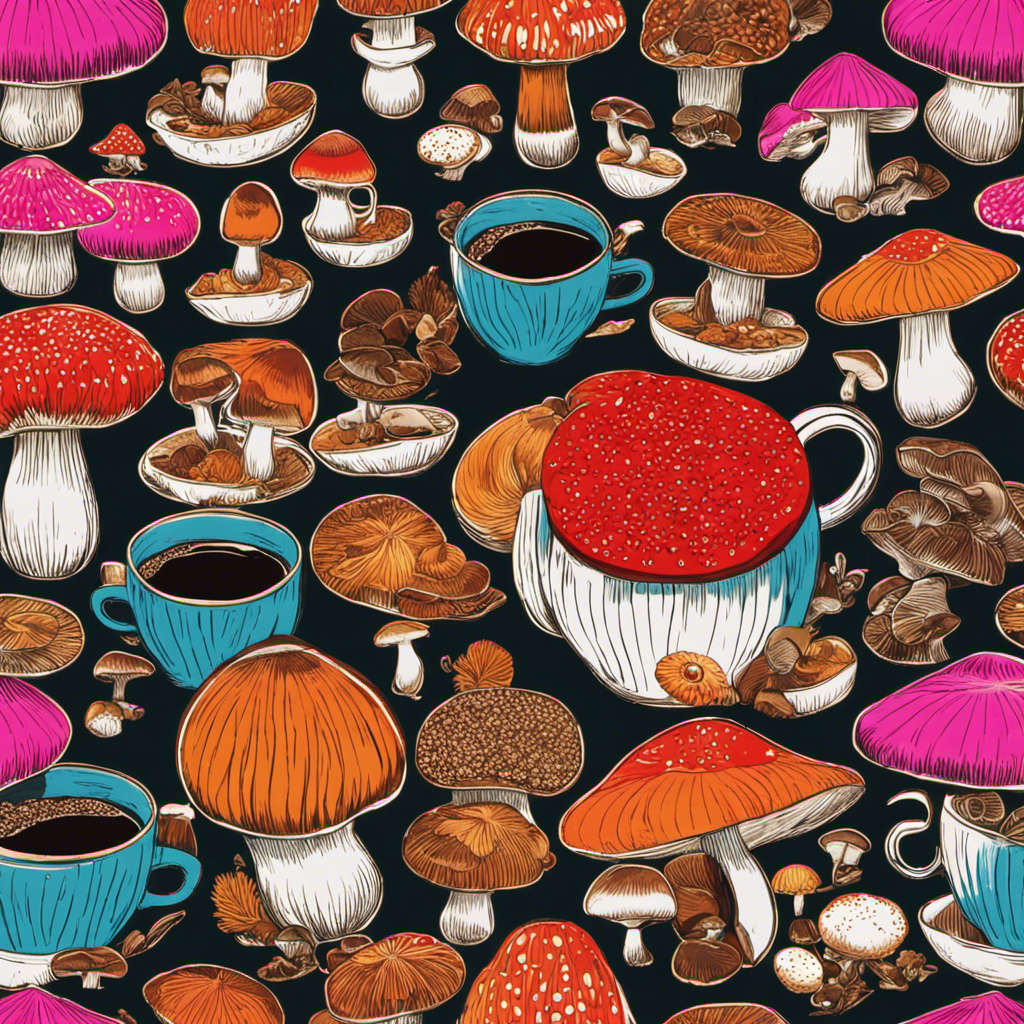
 Mushroom Coffee7 hours ago
Mushroom Coffee7 hours agoYour Ultimate Guide to Ryze Mushroom Coffee: 9 Things to Know
-
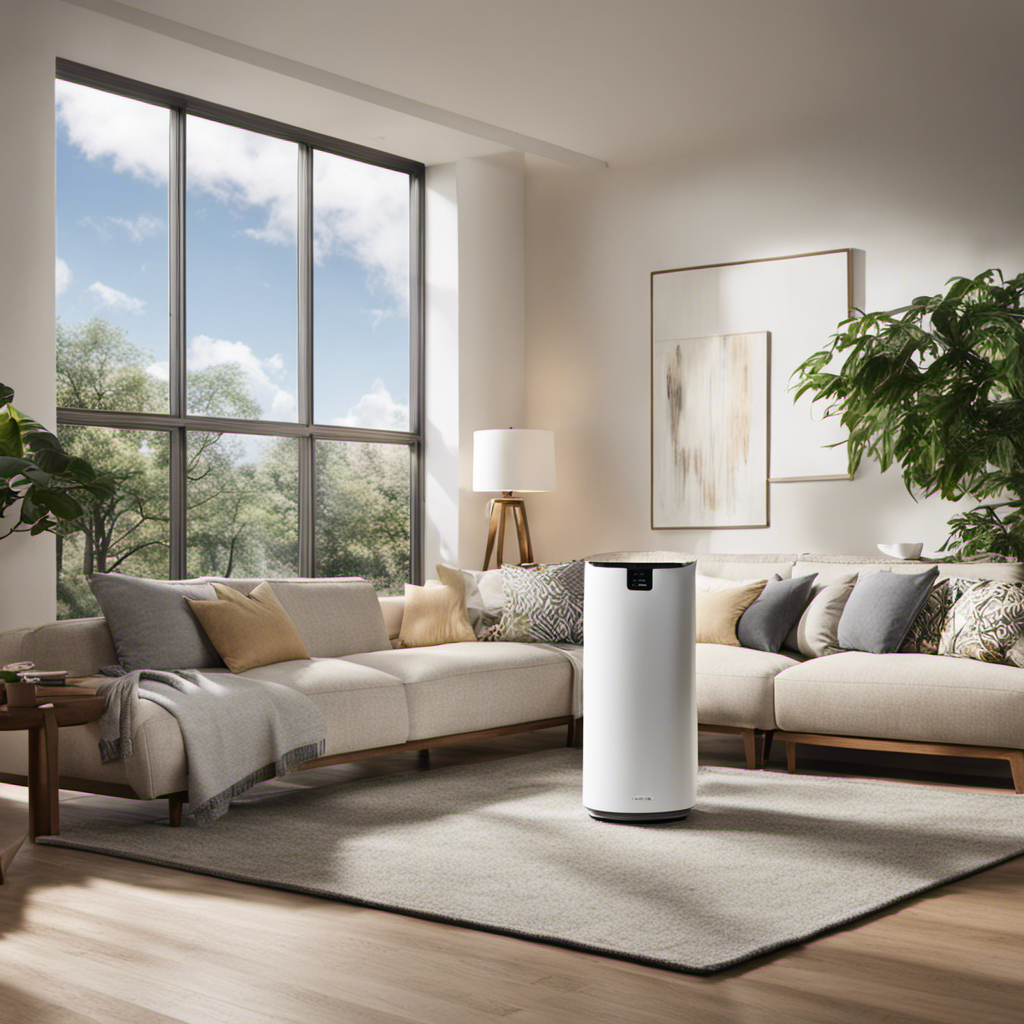
 Cappuccino Oracle Selected Reviews3 weeks ago
Cappuccino Oracle Selected Reviews3 weeks agoPuroAir HEPA 14 Air Purifier Review
-
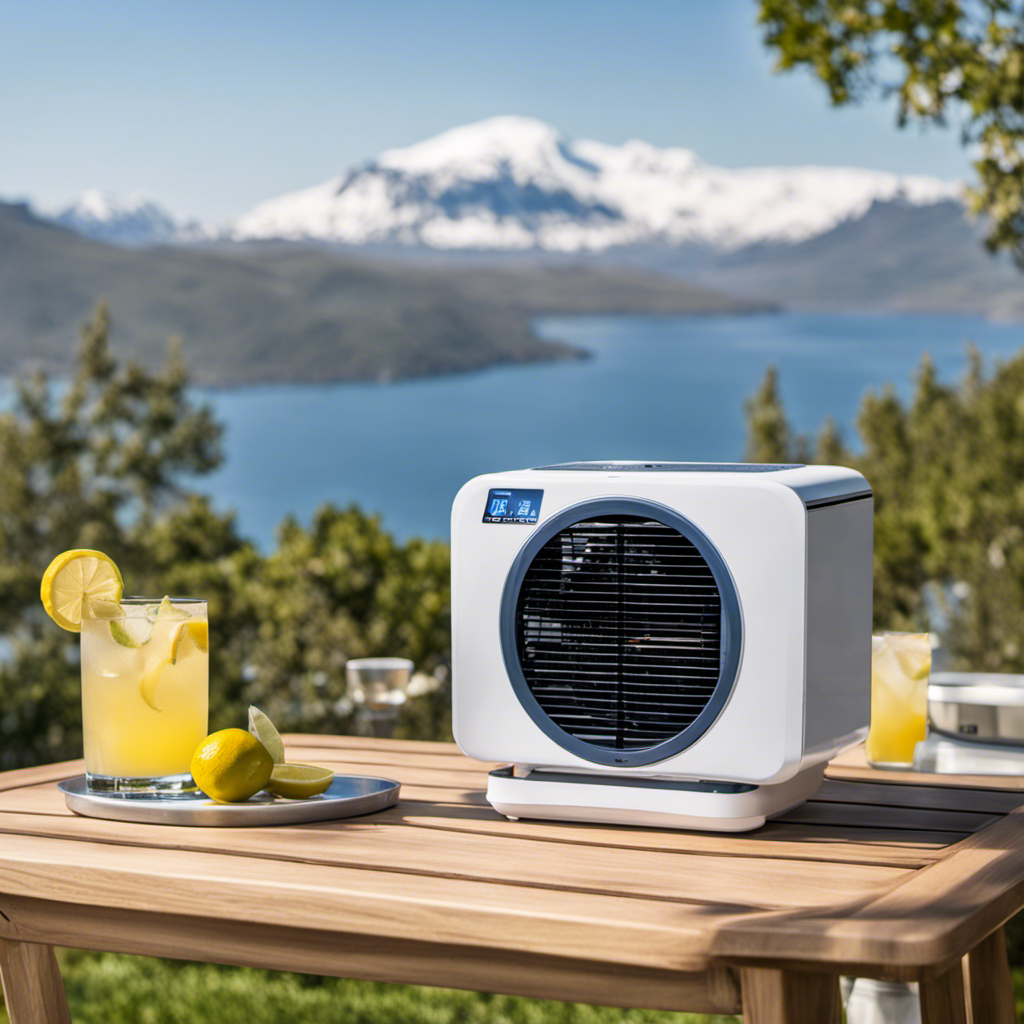
 Cappuccino Oracle Selected Reviews3 weeks ago
Cappuccino Oracle Selected Reviews3 weeks agoArctic Air Pure Chill 2.0 Review: Cool and Portable
-
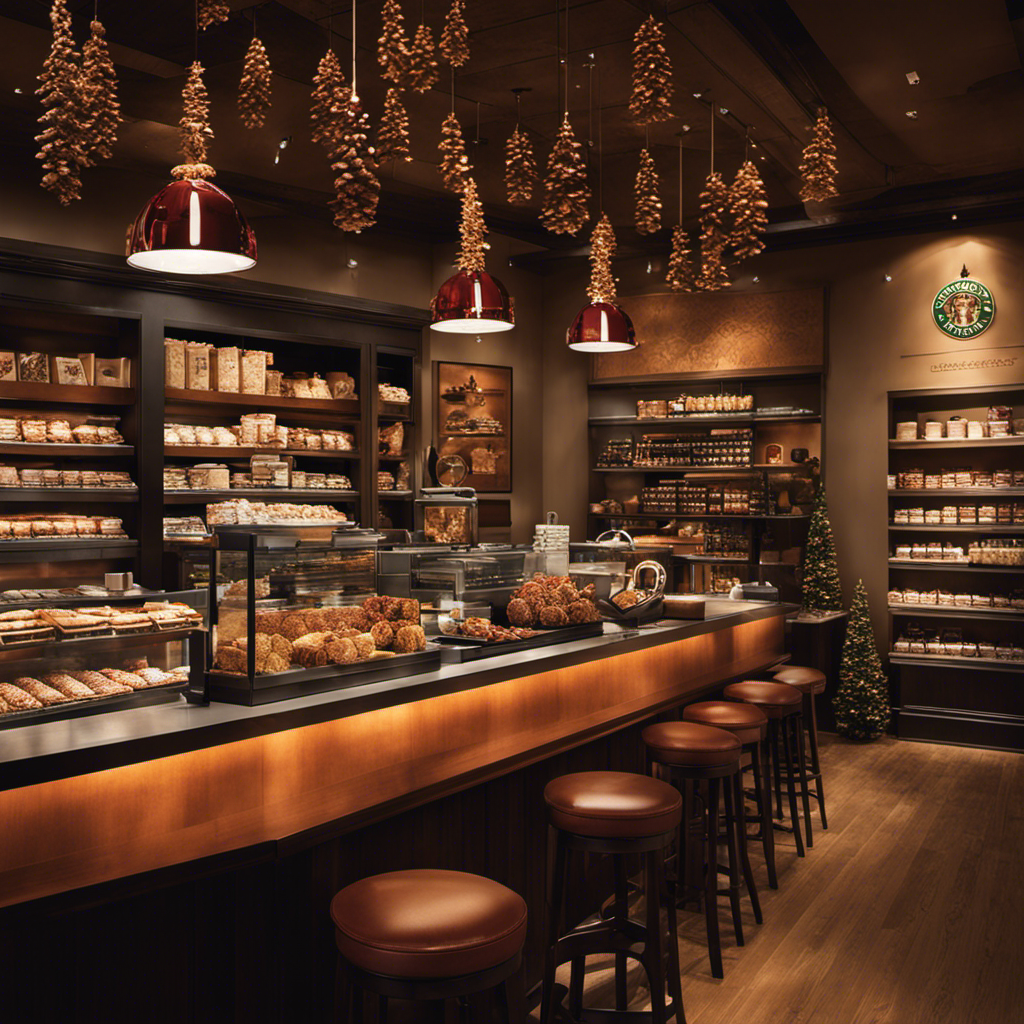
 Coffee Basics3 days ago
Coffee Basics3 days agoHow Do Starbucks’ Seasonal Specialties Appeal to Customers?
-

 Cappuccino Oracle Selected Reviews3 weeks ago
Cappuccino Oracle Selected Reviews3 weeks agoNineSky Dehumidifier Review: A Game-Changer for Comfort
-

 Mushroom Coffee8 hours ago
Mushroom Coffee8 hours agoIs Ryze Mushroom Coffee’s Caffeine Content More like Decaf or Regular Coffee?
-

 Cappuccino Oracle Selected Reviews3 weeks ago
Cappuccino Oracle Selected Reviews3 weeks agoToLife Dehumidifier Review: Efficient and Portable Solution
-
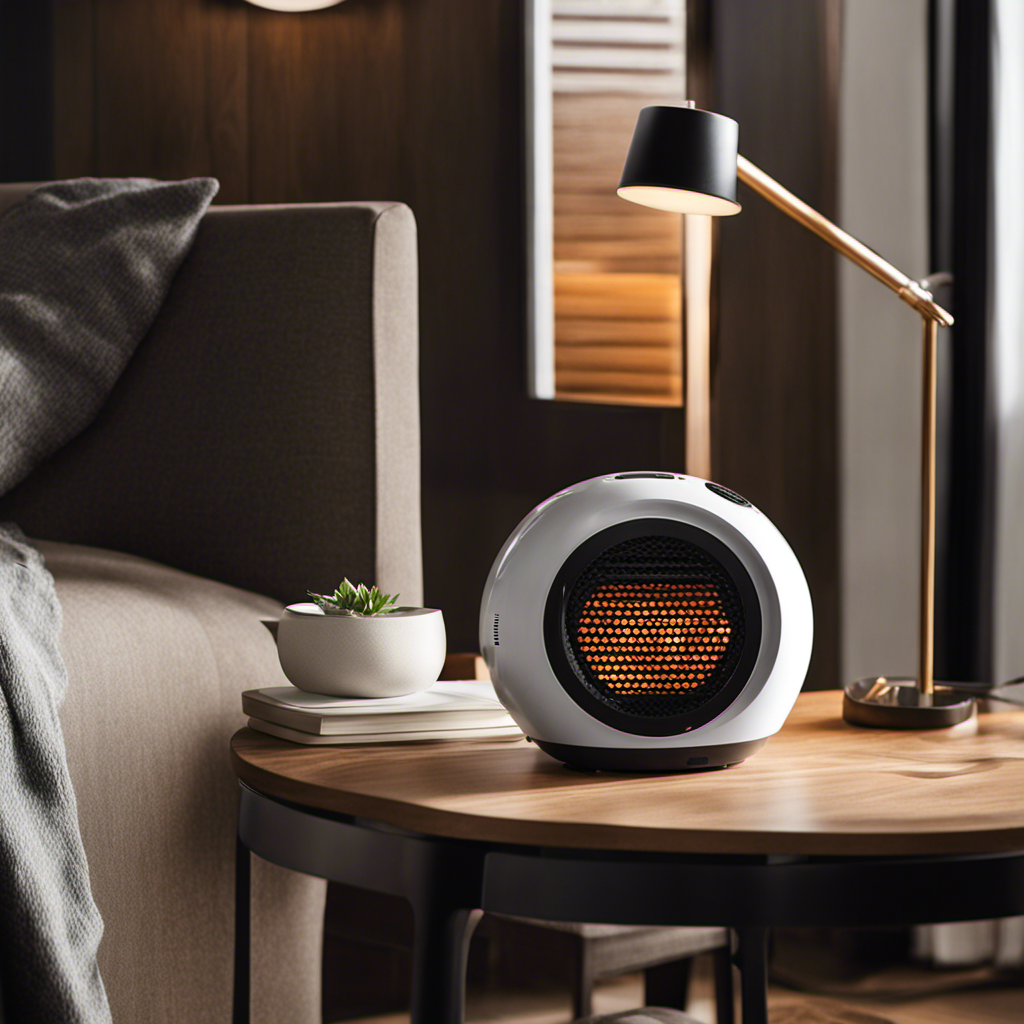
 Cappuccino Oracle Selected Reviews3 weeks ago
Cappuccino Oracle Selected Reviews3 weeks agoGivebest Portable Electric Space Heater Review





